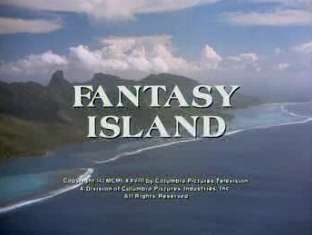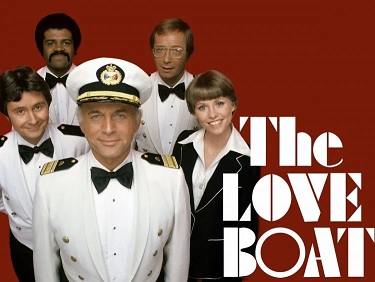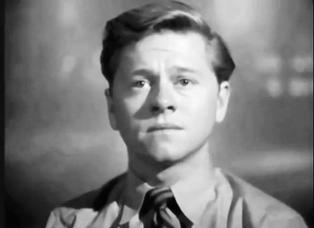Welcome to Retro Television Reviews, a feature where we review some of our favorite and least favorite shows of the past! On Tuesdays, I will be reviewing the original Fantasy Island, which ran on ABC from 1977 to 1986. The entire show is currently streaming on Tubi!
It’s time for another tonally confusing trip to Fantasy Island!
Episode 2.6 “War Games/Queen of the Boston Bruisers”
(Dir by Earl Bellamy, originally aired on October 28th, 1978)
We’re just six episodes into the second season of Fantasy Island but a definite pattern has emerged. Just as in the first season, each episode features two fantasies. But, in the second season, it appears that one fantasy is always comedic and the second is always serious. This has created an interesting tonal mishmash on Fantasy Island. Mr. Roarke spends half of his time laughing at the silliness of it all and the other half warning people that their fantasy could lead to death.
Take this episode for instance.
Rowdy Roberts (Anne Francis) is a roller derby champ whose fantasy is to become a “gentlelady” so that she can impress her daughter’s future in-laws. (Rowdy’s future son-in-law, meanwhile, is played by a young Jonathan Frakes.) Mr. Roarke and Tattoo spend an entire weekend teaching Rowdy how to speak properly, how to eat with silverware, and all the rest. However, snobbish Betty Wendover (Joanna Barnes) doesn’t want her son marrying Rowdy’s daughter so she arranges for Rowdy’s roller derby rival, Hooligan Hanreddy (Mary Jo Catlett), to come to the island and challenge Rowdy to a fight. Rowdy throws a punch and then runs off, ashamed at not being sophisticated. But, it turns out that Rowdy’s future son-in-law is really impressed with what Rowdy did and the wedding takes place after all. Yay!
Needless to say, this is all incredibly silly but it’s meant to be silly and both Anne Francis and Mary Jo Catlett seem to be having fun overplaying their rivalry. There is nothing particularly realistic about this fantasy but it’s not meant to be. It’s meant to make the viewer smile and, for the most part, that’s what it does.
But, at the same time, Vietnam vet Joe Beck (Christopher George) is chasing another Vietnam vet, attorney Ted Harmon (Greg Morris), through the jungle, intent on killing him. Joe blames Ted for the death of Joe’s younger brother. Apparently, they were all POWs together and Joe’s brother died during an escape. Joe is convinced that Ted betrayed his country. This is all pretty dramatic and it’s hard not to wonder why Roarke would have agreed to sponsor this fantasy in the first place. Ted is a prominent attorney who is thinking of running for political office. If he was murdered on Fantasy Island, that wouldn’t do much for the island’s reputation. Fortunately, it all works out in the end as Joe discovers that his younger brother is not only still alive but that he’s also the one who informed the VC about the escape attempt. Amazingly, Ted doesn’t seem to be at all upset that he was nearly murdered over a mistake. I guess that’s the magic of Fantasy Island.
These two fantasies didn’t really go together and, as a result, this episode feels a bit messy. But there is one cute moment in which Tattoo reveals to Mr. Rourke that his new side hustle involves selling phony college degrees.
Go Tattoo!










